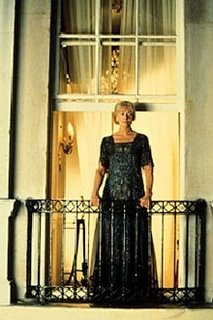A profound contemplation of his place in time and history.
Responses:
Reading through it and "The Tower" - I'm not sure what to think. I was just reading comments by Joyce about meeting Yeats, and deciding that Y was too old for Joyce to have a positive effect on him (and this is when Joyce was 19 and Yeats in his 30s, I think). So "Meditations", written when Yeats was in his 60s, came as a huge surprise to me. Very powerful, and somewhat shocking. But again with the ambiguity of ideas, the tension between action and thought...
Ideas about enduring (similarities with the idea of Y's tower as both a symbol of Irish imagination and a monument [perhaps to the same]).
I. Ancestral Houses:
- aristocratic, images of gracefullness (but a symbol of British presence, an earlier age).
- fountain imagery.
- fulfilment/ fullness of being.
- Homer, the father of poets.
- Pope Julius II and Michaelangelo, the urge to commemorate own life, own ego.
- degeneration of power, influence, fortune, impulse.
II. My House:
- Platonic creation = world of forms
- the Platonic hero at the top of a tower, rooted in the earth, but toiling towards the transcendent. (Tower as hero).
- Rhyme scheme - very tightly formed, finely crafted. ABCABCDEED. Intricate.
III. My Table:
- sword - beauty/deadly. Tradition...
- mutability of the moon, Platonic realm of enduring form. cf "Easter 1916"'s "stone" - enduring, not transitory.
- tradition of ancestral houses, sword as an emblem of that tradition.
- tension between mutability and permanence.
- "business" = 'busyness'. Quotidian. Everyday life.
- a celebration of the best that imagination can do.
IV. My Descendants:
- imagination as flower
- arrogance and humility - Y. knew his children didn't have his gift of the imagination.
- degeneration again - "natural declension of the soul"
- Tower images again = resonant. Y. as architect of the poetic paragraph.
- Ptolemaic emblem of the owl circling.
- "a girl's love" - Georgie Yeats
[The real tower is the poem, fashioned by the imagination.]
V. The Road at My Door:
- Republicans/ Free State
- light of the sun, not the moon. This is reality?
- moor-hen as a natural part of life, as Yeats is caught up in the vocation of being a poet.
VI. The Stare's Nest by my Window:
- "the empty house of the stare"
VII. I See Phantoms of Hatred and of the Heart's Fullness and of the Coming Emptiness
- Y. at his best (or worst...).
- trying to get himself into a mood of reverie, to get an overwhelming epiphany. Of course, it fails. This is the key thing - the bathos.
- Gustave Moreau's unicorns
- "brazen hawks" - the mind seizes on the emblem.
- violence, but emblems out of his own mind, emblems with a permanence.
- Y must withdraw, leave the top of the tower, and pine, unable to transcend.
- partial revelation - frustration - he cannot achieve what he wants. brought back down to earth. He tries for the emotional, rhetorical epiphany, but it just doesn't work.
After the class (with class notes):
- The dilemma between contemplative and active lives [Scholar/Soldier]
- The image of old age as oppressive and scary as a tin can tied to a dog's tail, that the dog running away from the noise will run until it dies...
- Vocab = Wordsworth-esque (a conscious evocation of W e.g. the "humbler worm" - W in a bad moment)
- Likens himself to W, the gift of imagination decaying into senility, the years that bring the philosophical mind. A dread of ending up like W, but his imagination seemed to blossom when he was in his 60s: "Easter 1916" and the transition
- [Out of the quarrel with ourselves ... poetry"]
- "bit the muse go pack" - consolation of philosophy, "deal in abstract things" in his 60s, feeling his age.
- battlements - looking over his life and works
"The making of the soul" - preparation of life for death...
Ireland falling apart re: the union. Find out more about this.
Reconciling the gap between the mundane and the transcendental world.





